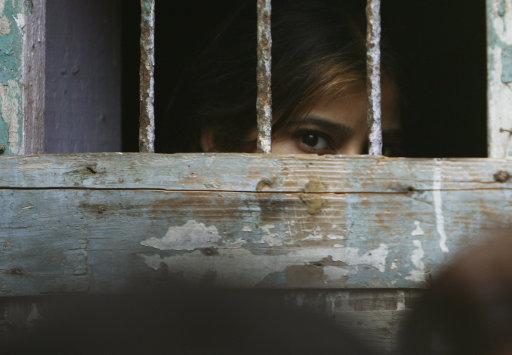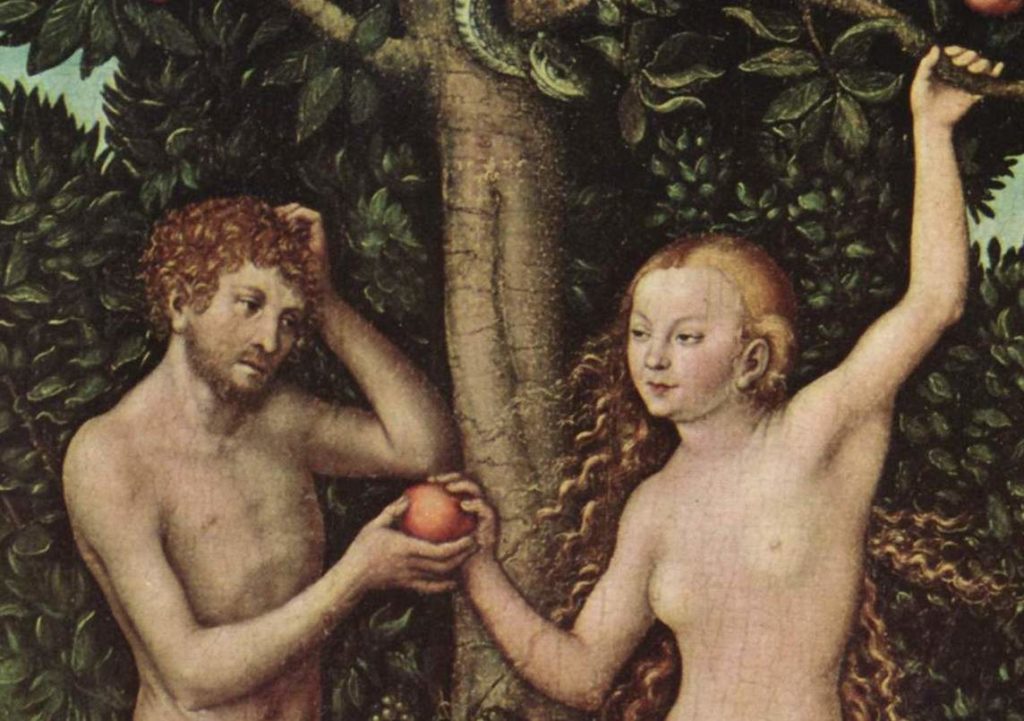
There is little doubt that womankind has suffered from oppression, persecution, domination, servitude and exploitation in all its various shapes and forms. Many of her rights have historically been ignored both in law and in practice. And this despite the fact that among the 282 Laws of Hammurabi, 92 were specific to women and included the right to buy and sell, to own goods, to trade, inherit and bequeath property.
IT IS ALSO WORTH mentioning that over the centuries women have occupied the highest ranks in government and state such as sovereign ruler and the like. Examples are the accession to power of Semiramis during the Babylonian era and her five year rule as queen while, in the Pharaonic period amongst others, women distinguished themselves and time and again rose to positions of power and authority. Cleopatra VII, for instance, reigned for a period of 20 years while female figures such as Shagarat al-Durr also at one time ruled. Some cultures and religions, however, have inappropriately prioritised a diminution of womankind, seeing her as a symbol of evil, sedition, deficiency and affliction.
A number of religious, cultural, social and historical reasons have underpinned this process. Of the numerous Islamic hadith and narratives circulated amongst the Sunnis and Shīʽa, we find the following:
Women are deficient in intellect and faith
Women’s preoccupation is the embellishment of mundane life
Beware of consulting women since their views are inevitably fatuous and their resolve weak
What is good in women is not good in men
Women are entirely evil
Woman is but a scorpion in fine raiment
Women are feeble and shameful, so cover her shame with house walls, and cover her feebleness with silence
Women are deficient in intellect and the testimony of two women equates to the testimony of one man, women are deficient in faith since they refrain from prayer and fasting during their menses, they are one less in portion, since the portion of man is twice that of women
It is good for a woman not to see a man, and for a man not to see her
A people that entrusts its affairs to a women shall never prosper
Woman is the source of evil and sin
There are many such examples circulating in hearts and minds, repeated by clerics in the mosques and by preachers in their books. All of them lay down, in the collective mindset of what is termed the Islamic nation, a general groundwork hostile to womankind, to her freedom, her rights and her honour.
Our Arab societies are still beset with male authority and macho culture
I have elsewhere discussed these accounts and had cause to reject all these hadith with respect firstly to the chain of transmission of the narrators, and secondly with respect to the evidence for their authenticity, after studying their objective circumstances and accounts (if, for the sake of argument, we assume them to be sound). An added reason is their open contradiction to the Qur’ān, such as the verses of the sūrat al-Nisā’ where equality between men and women is upheld with respect to rights and obligations. The same contradiction applies to the Sunna of the Prophet and numerous historical events, as is apparent to anyone who examines the Prophet’s behaviour towards his wives such as Khadīja bint Khuwaylid (a prominent merchant woman), ‘Ā’isha bint Abī Bakr, Hafsa bint ‘Umar ibn al-Khattāb, Ramla bint Abī Sufyān, Zaynab bint Jahsh, Zaynab bint Khyzayma, Sawda, Hind, Safiyya, Birra, Maymūna (all wives to the Prophet), and his daughters such as Fātima, Zahrā’, Zaynab, Umm Kulthūm, Ruqayya and others. There are also many Qur’ānic narratives such as that of Khawla bint al-Aws who protested against the Prophet and complained to God, with the result that God sent down rulings and a revelation to appease them. To resolve the serious problem of the pre-Islamic formula of divorce God sent down in His Qur’ān:
Allah hath heard the saying of her that disputeth with thee (Muhammad) concerning her husband, and complaineth unto Allah. And Allah heareth your colloquy. Lo! Allah is Hearer, Knower. Such of you as put away your wives (by saying they are as their mothers)[1] – They are not their mothers; none are their mothers except those who gave them birth – they indeed utter an ill word and a lie. And lo! Allah is Forgiving, Merciful. [Qur’ān LVIII,1,2]
God’s rejection of this phenomenon was explicit: They indeed utter an ill word and a lie. Consequently this woman and her courageous stand was cause for the resolution of a major problem and of a phenomenon highly dangerous to womankind.
This is an age-old problem as old as the story of Adam and Eve, of the apple and the Garden of Eden, of his expulsion from that garden. It is as old as Eve’s seduction of Adam, as it is related in some weak hadith that tell of the woman being created from Adam’s crooked rib, seducing him and causing his expulsion from paradise! The story is much disputed and not everything handed down by tradition should be considered sound or capable of only one single reading, given that no one book contains all the details of the story. This being the case, the traditionally recounted tale lacks corroboration or points to the fact that there
are specific conditions and events that explain its context, and indicate real circumstances rather than fantasies that depict women as an absolute evil, and man as universally good – something which the rational mind cannot accept.
Such tales omit or pass over many other accounts and hadith such as:
Women are fragrant, not mistress servants
Of worldly things, love women
I entered unto heaven and saw that most of its inhabitants were women
Show mercy unto women, and mercy shall be shown unto you
The last persons to bid farewell to the Prophet were women, and the Prophet actively sought the prayers of women since he considered that God Almighty would answer them. The accounts of the mother of Moses and of Maryam bint ‘Imrān are crystal clear in the Qur’ān and demonstrate the great power and standing of these women. How then can people selectively take some of these tales literally while ignoring other texts?
The hijab, the confinement of women to the home, and the evaluation of her as a source of shame – these are traditions handed down from pre-Islamic times and are not the property of Muslims. They are perhaps to be related to ancient customs and traditions (Socrates himself held that ‘women should be confined and are a source of shame’). Such opinions therefore derive from human beings like him and not from religion, all of which indicates that the hijab is something associated with a specific land, its conditions, its time and place – after all, in desert regions men and women used to cover their faces from the heat and dust and so on.
Some doctors of law, ancient and modern, held that the covering of hair was not an obligation so much as something associated with the woman’s breast (as in Qur’ān XXIV,31: draw their veils over their bosoms). Whether with respect to tradition or custom, or to the Qur’ān or the Sunna, or from the views of contemporary scholars such as Zakī Badawī, Hasan al-Turābī or Husayn Fadlallah and others, the term used here for ‘bosom’ (jayb) does not include the woman’s hair.
Life has moved on and the world now rejects slavery
Women, for example, in the West obtained the right to vote in 1924 in America and in 1945 in Britain and elsewhere, after which they progressed by stages as nations and cultures and legislations developed, particularly following the 1948 Universal Declaration of Human Rights. Women thus began to secure their rights bit by bit until someone like Mrs Margaret Thatcher in 1975 attained to the post of leader of the Conservative party and subsequently to the post of prime minister (1979 to 1990), a long and distinguished period during which she was dubbed the ‘Iron Lady.’ She went on to consolidate her political and administrative power; hers was the first government in the history of Britain that managed to win three consecutive elections.
As for our Arab societies, it is still beset with a male authority and macho culture that discriminates against women and favours men. This has been demonstrated by literary studies focusing on storytelling and novels, on films and the literary legacy, all of which give painful and bitter evidence of the double standards by which women are treated – at times as a beloved spouse, at other times as a scapegoat and an individual’s possession that amounts to servitude. There is a world of difference between the Amīna of Ihsān ‘Abd al-Quddūs, and the Amīna of Naguib Mahfouz or the writings of Taha Husayn, Qāsim Amīn, Hudā Shaʽrāwī, Mustafā Amīn and Shibli Shumayyil. For this reason Muhammad Qutb criticised Naguib Mahfouz’s novel The Thief and the Dogs for its dialectic on good emerging from evil and the movement in the novel that leads the reader to empathize with the protagonist’s circumstances and misfortunes.

Suggested Reading
If we take a look at modern legislation that is theoretically meant to be in favour of women, we see that in practice it is governed by traditions and customs that discriminate against womankind. Consequently women have yet to attain high positions, for all the lengthy speeches delivered on her importance, the roles she plays and her strengths. Real life has forced even fanatics and extremists – even those who point blank refuse to believe in the rights of women – to adopt the language of women’s rights so as to avoid the accusation of bearing a Stone Age mindset, of a mentality of self-isolation and backwardness entirely repudiated by life, science, reality and civilisation. This all poses questions about the credibility of their statements in support of womankind, her rights and freedom, and poses questions about fantasy and reality, slogans and practice, outer form and actual truth.
Some have sought to turn women into stone and confine her to the home, to function as an enslaved concubine, but life has moved on and the world now rejects slavery. Woman are educated and enlightened and fight for their rights, and at their side are men who believe in her, in her freedom and her liberation, on the grounds that life requires the fusion of the genders, the one complementing the other. As the Iraqi poet al-Zahāwī put it:
Either sex is lacking when sole,
It takes two halves to make a whole.[2]
[1] The formula for repudiation was to say: ‘You are to me like my mother’s back’, meaning that she is forbidden to him as a spouse (Ed.)
[2] The citation is from Jumayyil Sidqī al-Zahāwī’s poem In the West, where both sexes go to work, and in which he contrasts the social and psychological equality of men and women in the West with the situation in Iraq (Ed).


